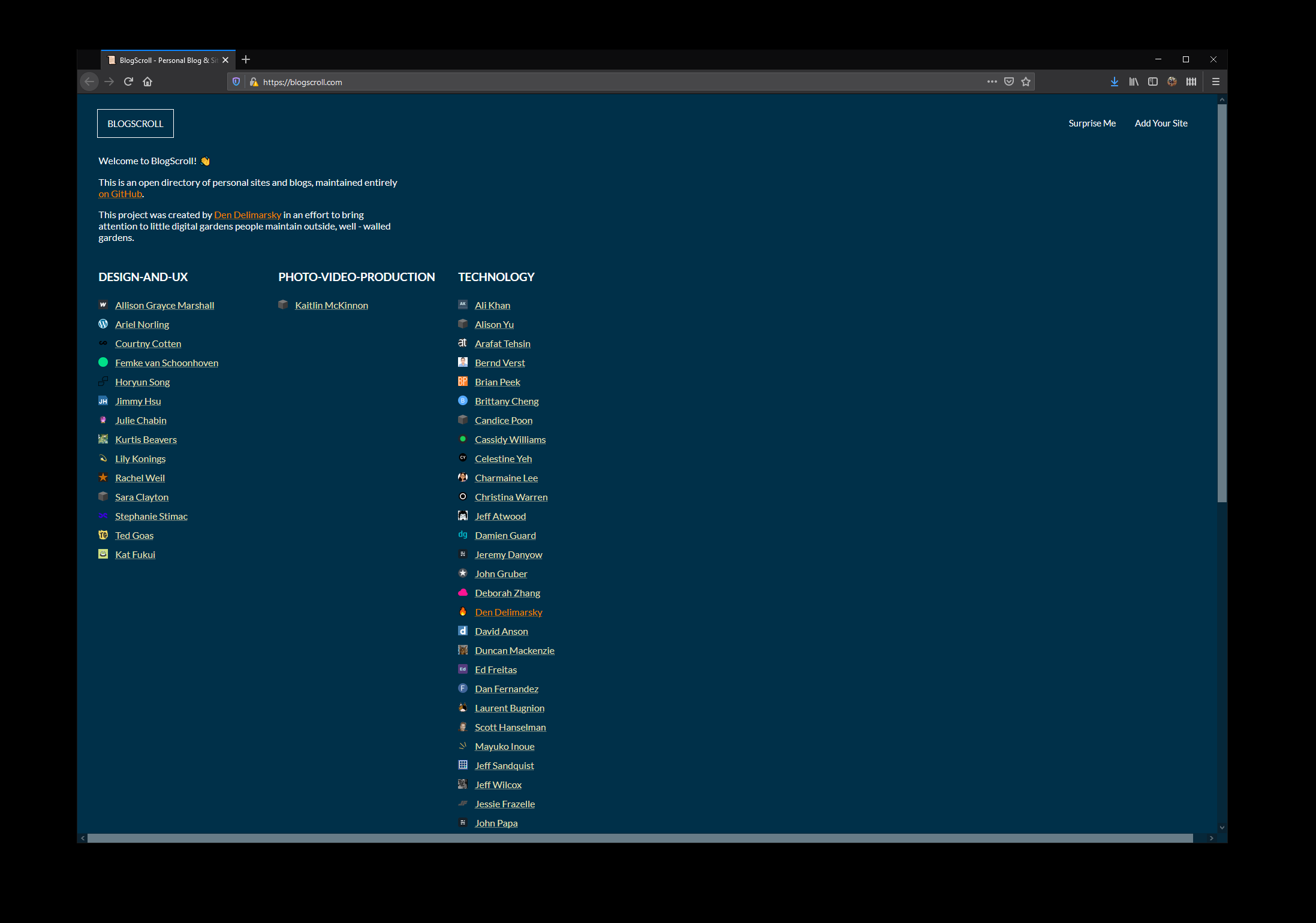I Launched A Personal Site Directory
Have you ever walked through a city that you’re well-acquainted with, where everything kind of looks the same and nothing breaks your expectations, and then stumble across a hole-in-the-wall restaurant that you never realized was there?
In 2020, it might seem like the art of crafting your own personal site became a thing of the past. Most of the engagement happens on social networks or inside walled gardens. I get it - it’s easier. You instantly have access to a much larger audience and it’s hard to compete with the dopamine hit from getting all the likes, claps, reactions, retweets, and reshares. But once in a while, I stumble across someone’s personal domain, and realize that they’ve been quietly writing on their blog for years, and the content is really good. It offers a glimpse into the person’s passions and aspirations, their views of the world, and logs of their explorations in whatever field they’re working in.
The discovery piece of personal blogs and sites has been missing for some time. There just isn’t a good directory where I can go and see what people are building themselves. Every single directory that I found was either unmaintained, filled with spam, or just become an aggregator of links to social media and the same walled gardens that I am trying to avoid. I could just build something simple that works exactly as I envisioned it. That thought resulted in BlogScroll.

The idea of this is build something akin to The Million Dollar Homepage, but free, powered by open-source, focused on individuals, and without the spam. I intentionally keep the design to a minimum, in that there is no design. It’s a categorized list of links. You can even use the Surprise Me button to randomly pick a site, and go there.
BlogScroll allows you to discover people’s digital gardens, and you can add your own site into the mix by either opening an issue or submitting a pull request. I review those regularly, and it shouldn’t take long to get things approved and merged. You can also use the issue tracker on GitHub to suggest new ideas or improvements. Just remember - I am keeping this simple.